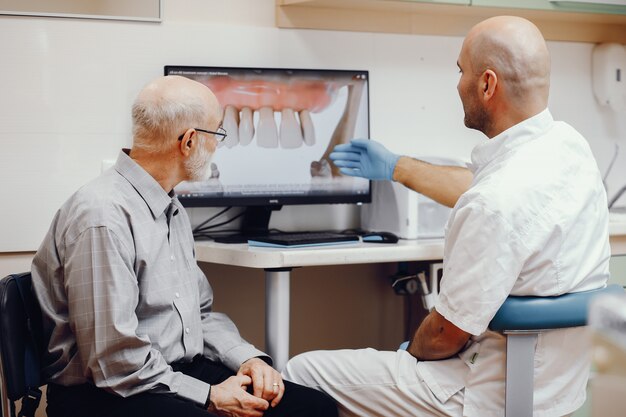
Alzheimer’s is a progressive brain disease that affects both the person dealing with it and their family members. Catching it early can help manage the symptoms better. But how can you test for Alzheimer’s? Interestingly, changes in your eyes and teeth might be early indicators. Here’s a closer look at how eye and dental checkups can help detect dementia, like Alzheimer’s.
**Eye Testing for Alzheimer’s**
Recent studies suggest that a simple eye test might detect Alzheimer’s before noticeable symptoms, like memory loss, appear. These tests, combined with blood tests, have shown promise in early and cost-effective detection. PET and MRI scans are typically used to spot brain changes linked to Alzheimer’s, but they are expensive. The retina, which is a part of the eye sensitive to light, is easier to examine and is closely connected to the brain.
One study used eye imaging to compare retinal photos of people with Alzheimer’s to those with minor cognitive issues and healthy individuals. Special software measured the characteristics of retinal blood vessels, showing that differences in these vessels correlated with brain plaque related to Alzheimer’s. This non-invasive method of using eye exams could potentially signal the disease’s onset early.
Harvard researchers are also exploring optical tests targeting amyloid beta, a protein that forms Alzheimer’s plaque in the eye. Identifying these proteins in the eye could help predict the disease before it severely impacts the brain.
**Dental Checkups for Dementia**
Maintaining good oral health may also lower the risk of dementia. Studies from the University of California and the Geriatric Society of America found that regular brushing lowers the risk of developing dementia. For example, in a study of elderly participants, women who didn’t brush daily had a 65% higher risk of dementia, while men had a 22% higher risk.
Further research links poor dental hygiene to tooth loss and increased dementia risk. A study from the University of Central Lancashire found that a significant proportion of people with dementia had a common mouth bacterium, porphyromonas gingivalis, suggesting a connection between oral bacteria and brain health. This bacterium can grow excessively if oral hygiene is poor, potentially contributing to serious gum diseases and Alzheimer’s.
Daily activities like eating and not brushing properly could allow these bacteria to enter the brain. Thus, regular dental visits are important for both oral and brain health. Future research will likely delve deeper into how poor dental care could initiate dementia, with possible links to Alzheimer’s emerging from untreated oral diseases.
**Preventing Dementia**
Dementia, including Alzheimer’s, is a growing concern as we age. While genetic factors play a role, lifestyle choices also significantly impact the risk. Researchers worldwide are studying various prevention methods, emphasizing the importance of healthy habits. Alongside regular exercise, a nutritious diet, and good sleep, maintaining excellent oral hygiene is crucial.
**Key Oral Hygiene Tips:**
1. **Brush Twice a Day:** Brush for at least two minutes twice daily using a soft-bristle toothbrush and fluoride toothpaste.
2. **Visit the Dentist Twice a Year:** Regular dental checkups help catch issues like gum disease early on.
3. **Floss Daily:** Flossing removes plaque between teeth that brushing can’t reach, reducing the risk of plaque formation and dementia.
4. **Use Mouthwash:** Gargling for 30-35 seconds can kill bacteria, reduce gingivitis, and prevent plaque.
5. **Avoid Sugary and Sticky Foods:** Foods like caramel, raisins, and energy bars can stick to teeth. Brush or rinse your mouth after consuming them to avoid decay.
Maintaining good oral and eye health can play a vital role in warding off dementia, including Alzheimer’s disease. By incorporating these habits into your daily routine, you can improve both your dental health and brain function.